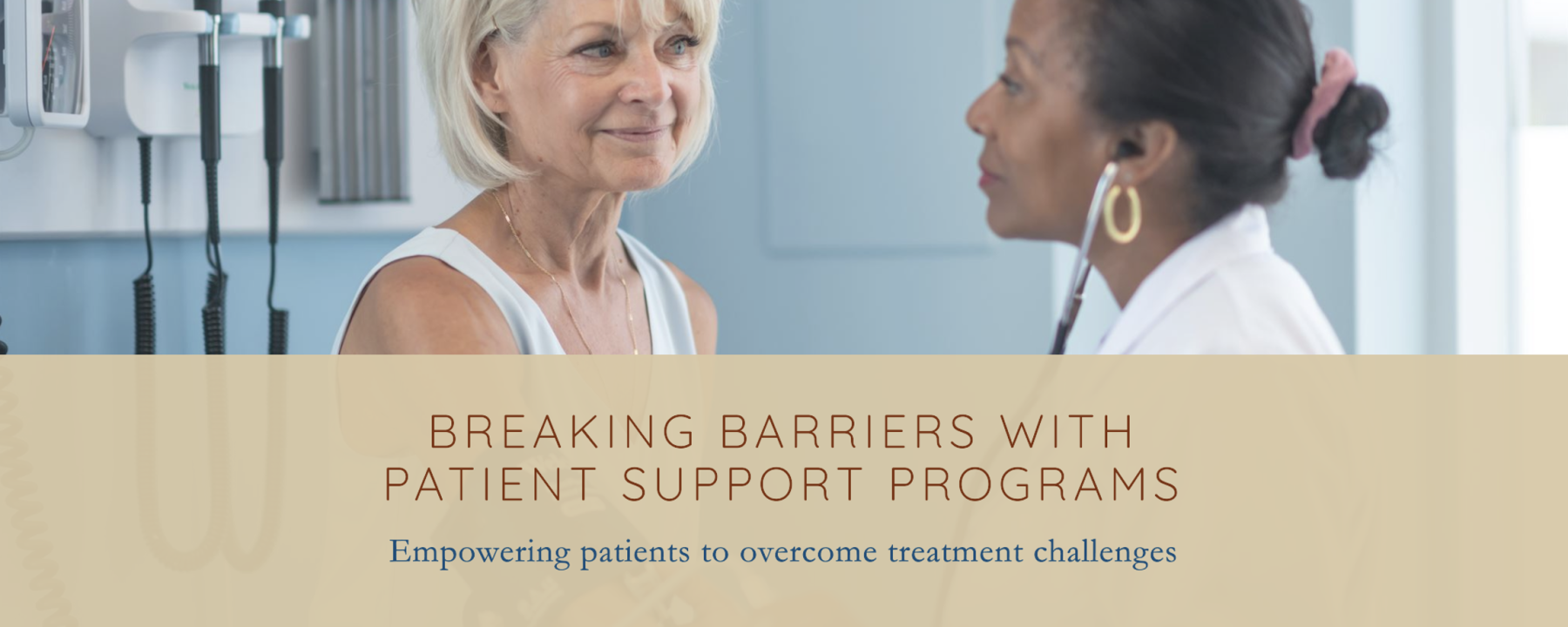
How Patient Support Programs Help Overcome Treatment Barriers?
In the ever-evolving healthcare landscape, patient support programs (PSPs) are increasingly recognized as vital tools in addressing treatment barriers. These barriers can include financial difficulties, inadequate education about the condition or therapy, geographical and logistical challenges, and a lack of continuous patient engagement. For Bio-pharma companies operating in Mexico, Brazil, and LATAM, the deployment of patient support services is critical in ensuring that patients not only start their treatment but also stay committed to it.
Patient support programs provide more than just medication management—they focus on holistic patient care, helping to address issues like adherence to medication, patient education, and improving access to treatment. By offering these services, Bio-pharma companies can create more personalized experiences for patients, ultimately driving better outcomes in countries with healthcare disparities like Mexico, Brazil, and LATAM.
Overcoming Financial Barriers with PSPs
One of the most significant barriers to effective treatment is the financial burden on patients. In regions like Brazil and Mexico, high costs of medications, co-pays, and insurance limitations make it difficult for many to access necessary treatments.
Example: In Brazil, a Bio-pharma company introduced a patient support program offering financial assistance through co-pay cards and reimbursement services. This program allowed patients who previously could not afford the cost of their medications to access life-saving treatments, improving treatment adherence and outcomes.
Example: In Mexico, where patients often navigate complicated insurance processes, a patient support program helped patients with insurance-related issues by offering direct support and guidance on how to access financial aid. This helped alleviate the financial strain and ensured that patients could maintain continuous treatment.
Enhancing Patient Education and Engagement
Lack of proper patient education is another common barrier that hinders treatment adherence. Patients who do not fully understand their condition or the importance of the prescribed treatment may inadvertently neglect their health.
Example: In Mexico, patients suffering from diabetes often struggle with lifestyle changes such as diet and glucose monitoring. By offering patient education through a PSP, patients received tailored advice, workshops, and digital tools that helped them manage their condition more effectively. This increased their engagement with the treatment process and improved overall outcomes.
Example: In LATAM, where awareness of new treatment options for rare diseases can be low, health science advocacy through PSPs can play a crucial role. Raising awareness about new therapies and clinical trials can significantly impact patient engagement. A PSP in LATAM helped promote understanding of a new treatment for cystic fibrosis, educating both patients and healthcare providers on its benefits.
Addressing Accessibility and Logistics Barriers
For patients in remote regions, especially in Brazil and Mexico, geographical barriers can prevent access to medication and healthcare facilities. PSPs can overcome these logistical challenges by offering services like medication delivery and telemedicine support.
Example: In rural Brazil, where patients live far from healthcare facilities, a Bio-pharma company implemented a medication delivery service as part of their PSP. This service ensured that patients received their treatments on time, eliminating delays caused by geographical distances and ensuring continuous adherence.
Example: In LATAM, a Bio-pharma company set up an omni-channel contact center, allowing patients in remote areas to consult with healthcare professionals virtually. This center provided virtual consultations, medication reminders, and emotional support, helping patients stay on track with their therapy regardless of their location.
Using Patient/Treatment Satisfaction Studies to Improve Programs
Gathering feedback through patient satisfaction studies is a key way to refine and improve patient support programs. By understanding patient needs, companies can enhance their services to better address the challenges patients face.
Example: A Bio-pharma company in LATAM implemented a patient satisfaction survey to measure the effectiveness of their PSP. Based on the feedback, they introduced more frequent follow-ups and personalized check-ins, which led to higher patient satisfaction and better treatment adherence rates.
How Bio-Pharma Companies Benefit from PSPs in LATAM?
By investing in patient support programs, Bio-pharma companies can improve patient engagement, adherence rates, and treatment outcomes across Mexico, Brazil, and LATAM. By offering services such as patient education, health science advocacy, patient satisfaction studies, and omni-channel contact centers, Bio-pharma companies can address treatment barriers effectively.
These programs help companies build trust with patients, improve brand loyalty, and gain a competitive edge in the market.
Conclusion
In conclusion, patient support programs are essential in helping patients overcome treatment barriers in Mexico, Brazil, and LATAM. Whether it is financial assistance, educational support, logistical help, or patient engagement, PSPs can significantly improve patient outcomes. Bio-pharma companies that offer patient support services are not only contributing to the well-being of their patients but also positioning themselves as leaders in the healthcare market.
Contact Us
To learn more about how our patient support services can help you overcome treatment barriers and enhance patient outcomes, contact us today! Our solutions include patient education, health science advocacy, patient/treatment satisfaction studies, and omni-channel contact center services tailored for Bio-pharma companies in LATAM.